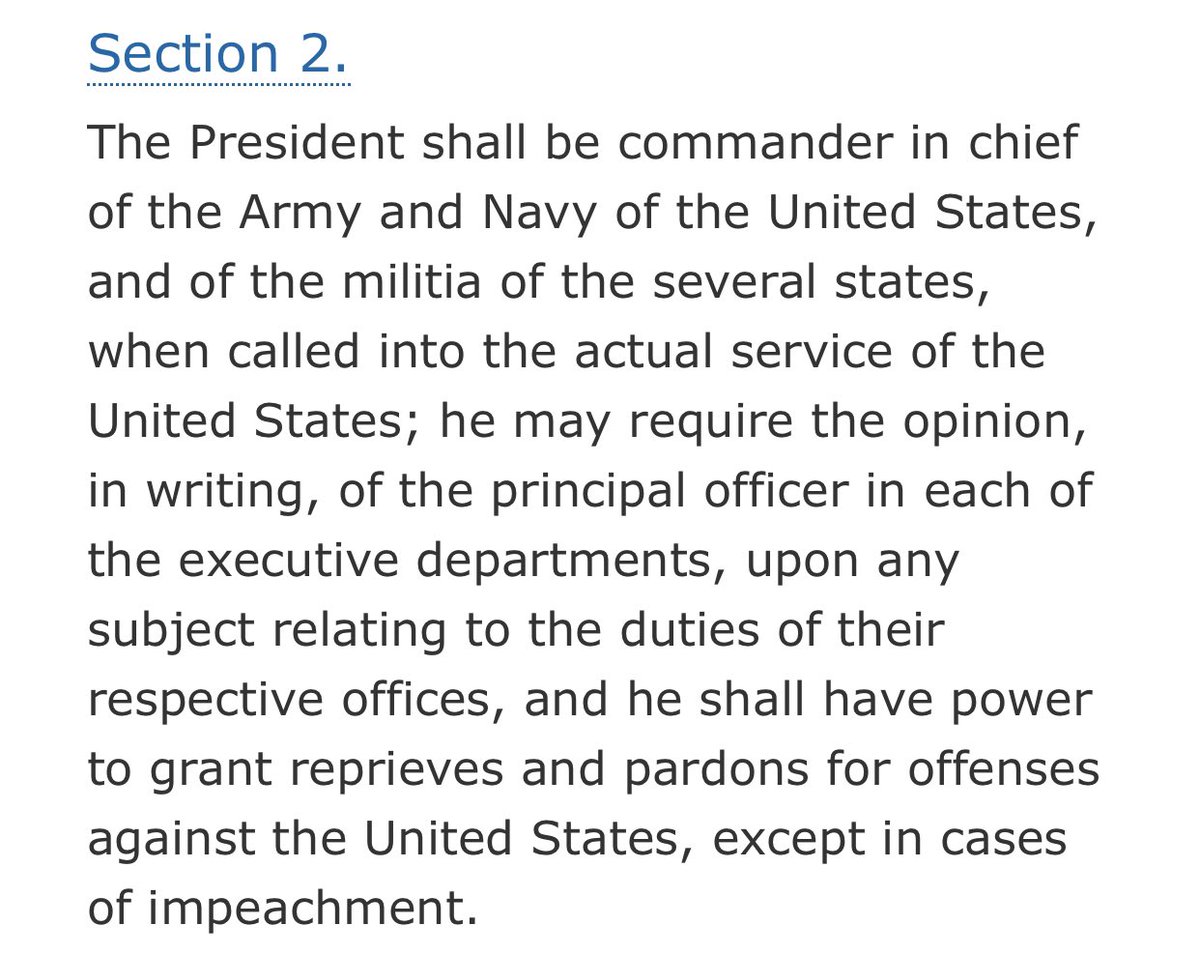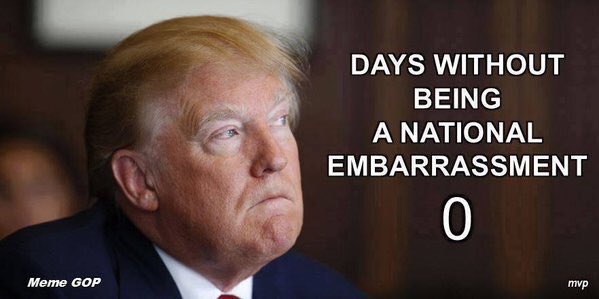The idea was to provide the executive with a check on (perceived) excesses by the courts.


I\u2019m retweeting this one not because I agree with it, but because I want to emphasize that all of this is so speculative. What does the exclusion of the president\u2019s inability to pardon in cases of impeachment mean? https://t.co/N29M7sZKGj
— Holly Brewer (@earlymodjustice) January 19, 2021

According to the press pool, Trump arrived at his Trump-branded golf club this morning in Sterling, VA.
— Alamo_On_The_Rise \u2197\ufe0f\U0001f198 \U0001f1fa\U0001f1f2 (@AlamoOnTheRise) November 27, 2020
This is Trump's 315th day at a golf club and 424th day at a Trump property since taking office at our expense as the outbreak continues to ravage our country. https://t.co/zaNo0gWEpY
along the "presidential" motorcade route today. pic.twitter.com/eIkQi5ZhtC
— ActivistKathy (@activistkathy) November 27, 2020
The sign I was holding as Trump pulled into his golf course. Visible in above picture! pic.twitter.com/kYC5aQJB8A
— William D Johnson (@GMUBillJohnson) November 27, 2020
Reminder: Trump said, if elected, he would never see his golf courses ... would be working all the time #TrumpLies pic.twitter.com/Kj6aFVoeaw
— Alamo_On_The_Rise \u2197\ufe0f\U0001f198 \U0001f1fa\U0001f1f2 (@AlamoOnTheRise) September 20, 2020
Happy Monday everyone :-) Let's ring in September by reacquainting ourselves with Virginia neo-Nazi and NSC Dixie affiliate Sayed "Robbie" Javid, now known by "Reform the States". Robbie is an explicitly genocidal neo-Nazi, so lets get to know him a bit better!
— Garfield but Anti-Fascist (@AntifaGarfield) August 31, 2020
CW on this thread pic.twitter.com/3gzxrIo9HD
